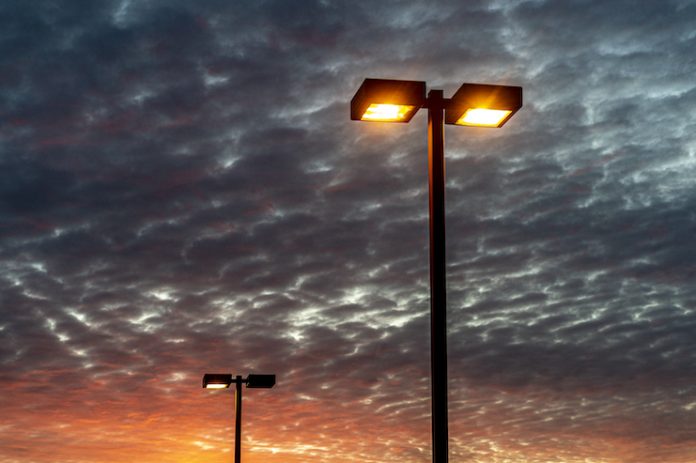
BOSTON, Masachusettes — WALI, Wireless Area Lighting Interface systems, from Sunrise Technologies, can give building owners and facility managers flexibility for parking lot lighting control while reducing energy consumption and cost by automatically dimming during off-peak hours or when not occupied. Keeping lot lighting to a minimum when not occupied reduces light trespass and light pollution, which demonstrates concern for ecology.
WALI control nodes are the components of WALI systems. They are available in seven-pin Twistlock or Wall-Pack configurations, for use with standard (105-305VAC), or high-voltage (310-530VAC) fixtures. An optional occupancy/motion sensor allows parking lots to be modestly lit after hours, then adjust to full brightness, or to a user set percentage, when a person or vehicle enters the area, thereby further reducing power consumption and electricity costs.
WALI systems are scalable and deployable as stand-alone parking lot controls or integrated multi-site systems controlled under a single executive dashboard. If building management system integration is needed, WALI can integrate through a BACnet connector. WALI systems also can be programmed with multiple zone configurations. This allows operators of larger lots or facility campuses to design custom lighting control configurations for each specific area to achieve energy savings while still providing a well-lit area.
Sunrise General Manager Mauricio Familiar commented, “Building owners and managers have been quick to embrace the WALI product line. We can’t underestimate the importance of reducing energy consumption. It’s a major objective across a wide range of industries. WALI systems are an easy-to-deploy solution that helps to meet that worthy goal.”
WALI Systems are commonly deployed at office parking lots, car dealerships, shopping malls, warehouse and distribution centers, military base facilities, hospitals and emergency care centers, and college campuses. They provide flexibility for lighting control with both pre-scheduled and manual override capabilities via web browsers and mobile device apps. The addition of occupancy/motion sensor integration fills a need to conserve energy and reduce carbon footprint.











